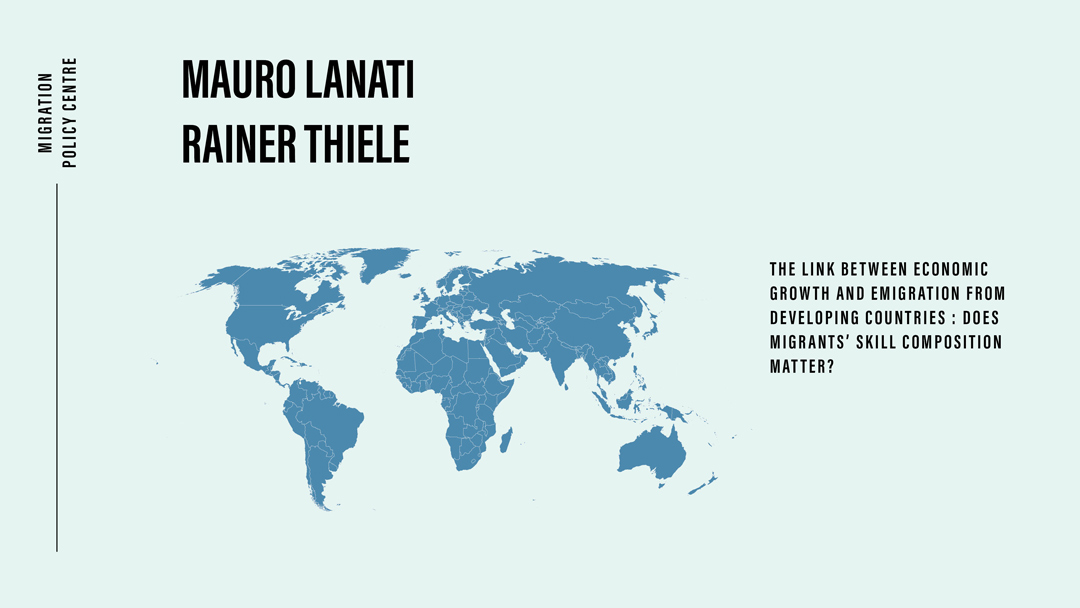Tackling the root causes of emigration from developing countries through development cooperation has been suggested as an essential part of the policy mix in OECD migrant destinations, even though the evidence on whether economic development leads to more or less people emigrating is so far inconclusive. Employing various panel-data approaches, we investigate the relationship between income per capita and emigration to OECD countries separately for three different skill groups – low-skilled, medium-skilled and high-skilled emigrants. Our findings reveal a universal negative association between income per capita and emigration for all three skill groups and across specifications. This implies that policy makers should not be too concerned about potential trade-offs between (successful) development cooperation and immigration management at least in the short to medium run that our analysis covers. At the same time, the scope for using development cooperation as a migration policy instrument is limited due to the modest size of the estimated income effect.
This is an abstract of working paper by Mauro Lanati and Rainer Thiele – the full working paper is available in Open Access in Cadmus, the EUI Research Repository.
(Publisher: European University Institute ; ISSN: 1028-3625 ; Publishing Year: 2021 ; Keywords: Migration, Emigration, Economic Development, Economic Growth, Migrants’ Skill Composition ).
